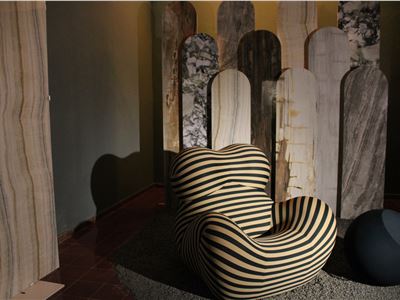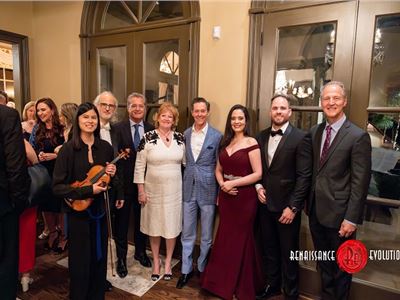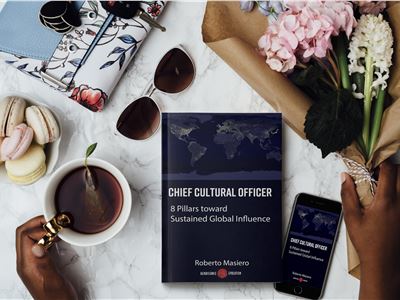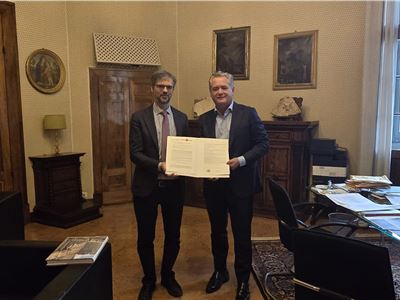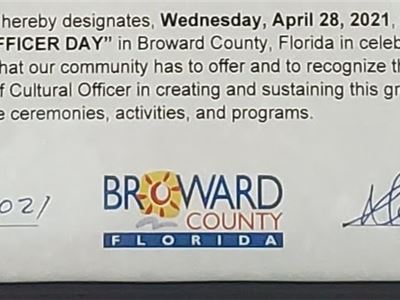You know you're destined to be a fashion designer if you:
a) spent most of your childhood making clothes for your Barbie dolls instead of playing with your friends;
b) read fashion magazines instead of your school books;
c) ran a boutique out of your basement at age 10. In other words: if you want to be the next Giorgio Armani, it helps to be completely and utterly obsessed with fashion.
However, there are many aspects of the profession. Working as a fashion designer can just as well mean supervising a design team at a sportswear company as producing a label under your own name. Although the former career may not seem as glamorous as the latter, it certainly will make your life less stressful.
To create your own label takes a lot of time, dedication and hard work. Not to mention living just above the poverty line for several years.
Choosing a strategy
There are as many different ways to embark upon a fashion career as there are styles of design. Ralph Lauren's Polo empire was founded on a small tie collection that he sold to Bloomingdales.
Helmut Lang decided to open his own clothing store when he couldn't find a t-shirt that he liked.
Michael Kors built up a network of customers by selling clothes in a trendy NYC boutique. However, most people find that the best foundation for a design career is to get a fine arts degree in fashion at a prestigious school. Besides teaching you the craft, a good school will also add credibility to your resumé.
Applying to a school
There are a lot of colleges that have fashion programs, but only a handful has the kind of reputation that can really push your career. It's hard to enter these schools as competition is high, and they tend to be very selective. You apply by sending a portfolio of drawings of your designs. Drawing is also an important skill for a designer – it is the way you communicate your ideas. In order to build an impressive portfolio it's a good idea to have some experience in sketching; taking art classes will help you understand form and proportion. But you don't have to be an expert drawer to get accepted to a school.
What school will do for you
Most fashion programs are three to four years long. During that time you will take fine arts classes and study drawing, color composition and form. You will also learn pattern making, draping and cutting techniques. One of the most important advantages of design schools is that they work really closely with the industry. Parsons, for example, have "designer critic projects" where successful designers like Donna Karan and Michael Kors work directly with the graduating students. Ambitious students also have the chance to win prestigious awards and grants, which bring them a lot of attention as well as financial support. One very important event is the fashion show at the end of the last semester, when graduating students show their collections. A lot of important people from the fashion industry attend these shows to scout new talent. It's also an opportunity to be really outrageous and get noticed by the media. Hussein Chalayan, for example, became instantly infamous when he showed rotting clothes that he had buried in his backyard for his graduation show at Saint Martins.
Alternative routes
If you're just looking to get a job in the fashion industry – not a career as a designer – you probably don't need to go school. If you want to work as a seamstress or a patternmaker, the best thing is probably to apply for an internship at a fashion house and work your way up. However, there are many examples of famous designers who started out as interns with no formal training. For example, Dior's brightest new star, men's wear designer Hedi Slimane, had a degree in journalism when he started working with men's wear designer José Levy.
Balenciaga's Nicolas Ghesquière is another example of a brilliantly successful designer who learned the jobs hands-on, as an assistant at Jean-Paul Gaultier. Usually, you apply for an internship by sending a portfolio to a fashion house you're interested in. But it's a good idea to call them up beforehand to see exactly what they need. It's also important to note that competition is fierce, and unless you have personal connections, it's very difficult to get an internship without an education.
There are also designers, like Luella Bartley, who started their own business after working as stylists for several years, thus building an industry network as well as a good marketing sense.
Understanding the business
Unfortunately, it's not enough for a designer to be creative; you also have to have some business sense. As fashion gets more and more corporate driven, it's important to be aware of the business climate and understanding the mechanics behind it. By religiously reading trade papers like "Women's Wear Daily" you will get a lot of valuable information. If you want to run your own company, you need to be extremely organized and learn at least the basics of economics. A lot of fashion schools are currently increasing business classes in their curriculum.
BY @Ivette
- Tags: fashion designer
- Categories: Arts Education Life & Style Women




